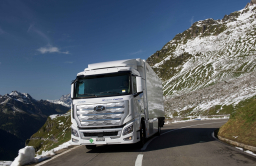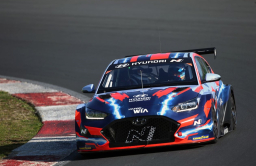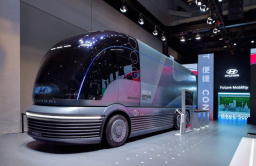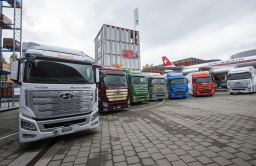-
KOSPI 2577.27 -2.21 -0.09%
-
KOSDAQ 722.52 -7.07 -0.97%
-
KOSPI200 341.49 +0.02 +0.01%
-
USD/KRW 1396 -2.00 0.14%
Hyundai, China’s CICC in initial deal for commercial vehicle business
Automobiles
Hyundai, China’s CICC in initial deal for commercial vehicle business
With its first overseas hydrogen fuel cell plant in Guangzhou, Hyundai hopes to build and sell hydrogen trucks in China
By
Nov 08, 2022 (Gmt+09:00)
2
Min read
News+
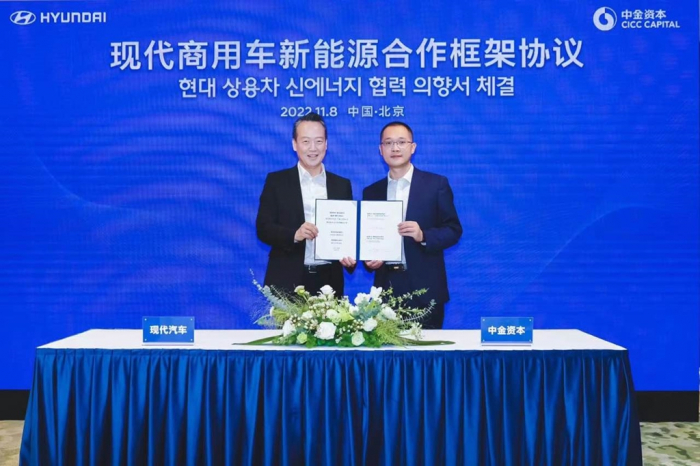
South Korea’s Hyundai Motor Co. said on Tuesday it has partnered with China International Capital Corp. (CICC), China’s largest investment banking group, to expand its presence in the eco-friendly commercial vehicle segment of the world’s largest car market.
Hyundai said it signed a memorandum of understanding (MOU) with CICC’s capital management affiliate, widely known as CCM, to jointly pursue a commercial vehicle business in China.
The two companies are also considering a share swap or a stake purchase to solidify their partnership, according to the Korean automaker. Details will be finalized by the end of this year, it said.
Under the initial agreement, Hyundai will develop and build eco-friendly commercial vehicles at its commercial car manufacturing plant and a research center in Sichuan, China.
For its part, CICC and CCM will establish sales channels by jointly forming a fund with the Chinese government, state-owned enterprises and logistics firms.
“Through this partnership, we hope to respond to the rapidly changing Chinese car market and preemptively secure demand for eco-friendly commercial vehicles from China’s government agencies and companies,” said a Hyundai official.
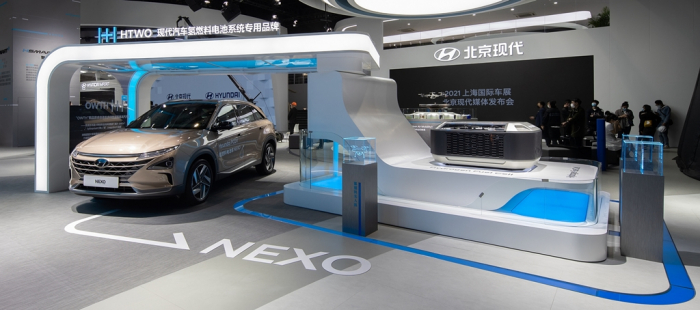
Hyundai Motor Group, which owns Korea’s two largest automakers, Hyundai Motor and affiliate Kia Corp., has said it wants to sell hydrogen-powered trucks equipped with its fuel cell systems in the Chinese car market.
FIRST OVERSEAS HYDROGEN FUEL CELL PLANT IN CHINA
Last year, Hyundai said it is building its first overseas hydrogen fuel cell systems plant in China to enter the world’s largest auto market with its hydrogen vehicles built there.
Hyundai said at the time it will supply fuel cells produced at its plant in Guangzhou, called HTWO Guangzhou, to its commercial vehicle factory in Sichuan to locally manufacture hydrogen-powered vehicles.
In China, Hyundai Motor will be competing with global peers such as Japan’s Toyota Motor Corp. as well as Chinese automakers.
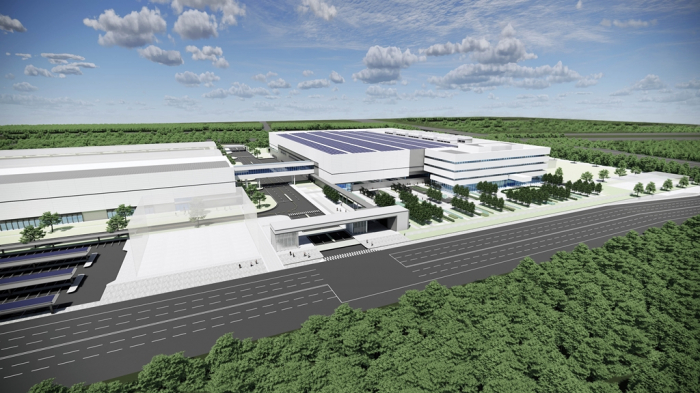
Toyota has already entered the Chinese hydrogen-powered auto market by establishing hydrogen-charging facilities in Jiangsu in 2017 and launching a joint R&D firm with a Guangzhou-based Chinese company in 2020.
In November 2020, Hyundai Motor said it signed two initial agreements with several Chinese companies toward establishing business platforms for hydrogen trucks in China.
Hyundai said that the deals will pave the way for the company’s project to sell as many as 27,000 hydrogen-fueled commercial vehicles by 2030 in China, which aims to have 1 million hydrogen vehicles on its roads by that time.
Write to Hyung-Kyu Kim at khk@hankyung.com
In-Soo Nam edited this article.
More To Read
-
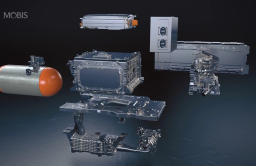 Hydrogen economyHyundai Mobis breaks ground on $1.1 bn hydrogen fuel cell plants
Hydrogen economyHyundai Mobis breaks ground on $1.1 bn hydrogen fuel cell plantsOct 07, 2021 (Gmt+09:00)
-
Jul 02, 2021 (Gmt+09:00)
-
Jun 11, 2021 (Gmt+09:00)
-
Jan 15, 2021 (Gmt+09:00)
-
Jan 05, 2021 (Gmt+09:00)


